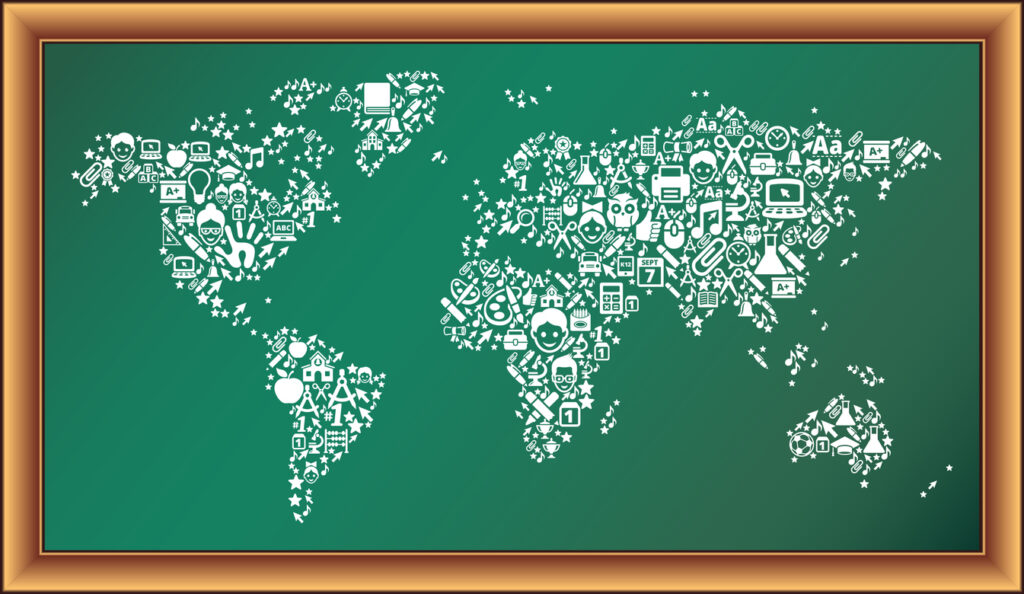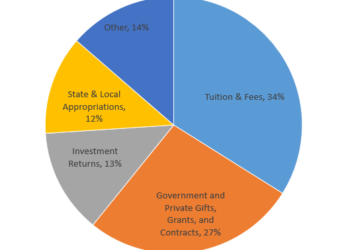Amidst the discussions at the Times Higher Education Asia Summit 2024 (April 29-May 1, Malaysia), the resounding buzz around transnational education (TNE) could not be ignored. Educators, policymakers, and representatives from the education ministry of various Asian countries, appeared united in their efforts to expand educational accessibility and foster global collaboration. During the opening ceremony at the summit, Zambry Abdul Kadir, Malaysia’s Minister of Higher Education, emphasized the importance of avoiding “isomorphic mimicry.” He highlighted that while aspiring to achieve an Ivy League status is common, it is crucial to prioritize meeting the specific needs of students in the region.
TNE was much discussed during the course of the 3-day event. It presents a paradigm shift in how universities engage with students, faculty, and educational institutions worldwide. It refers to “Education provided by institutions in one country to students in another.” There are currently more international students pursuing UK credentials abroad than within the UK. This has significantly expanded opportunities for students ensuring their preparedness on a global scale.
Some institutions have already taken steps in this direction and others are keen to follow suit, but are uncertain about the next steps. However, realizing its full potential necessitates a deliberate examination of various aspects, from the regulatory frameworks that have been established to navigating cultural inclusivity, and gaining deeper insights into the distinction between TNE and online learning.
Developing sustainable TNE partnerships: Navigating Regulatory Hurdles and Promoting Diversity, Equity, and Inclusion in TNE
First and foremost, fostering an environment conducive to TNE requires streamlining and simplifying the regulatory rules to facilitate partnerships between universities across borders is critical. This will enable universities to navigate bureaucratic hurdles more efficiently. At the same time, it’s important to consider what’s in it for both partnering institutions. What mechanisms can be put in place to foster long-term, sustainable partnerships between universities across borders, ensuring mutual benefit and academic integrity?
Second, exposing students to diverse settings is key since it cultivates a world view and a heightened awareness of global challenges — a skill set indispensable in today’s interconnected world. TNE has revolutionized access to education for students and provided unparalleled opportunities for cross-cultural immersion and global networking. In fact, even at the Times Higher Education Asia Summit 2024, value-based education was talked about, emphasizing the values we need to instill in learners to foster dialogue with diversity.
To truly harness the transformative power of TNE, it is important to promote diversity and cultural awareness among faculty members. This involves not only recruiting faculty from diverse backgrounds but also providing comprehensive training on cultural sensitivity and effective cross-cultural communication. By developing culturally competent faculty, universities can create inclusive learning environments that celebrate diversity and promote mutual understanding. This brings us to important questions:
- How can we ensure that diversity, equity, and inclusion are at the forefront of TNE initiatives, both in terms of student representation and faculty composition?
- How can universities equip faculty and students with the necessary cultural competencies to navigate diverse environments respectfully and effectively?
Moreover, in addition to student mobility, facilitating faculty mobility is essential for the success of TNE initiatives. By encouraging faculty exchanges and collaborative research projects, universities can leverage the expertise of scholars from around the world, enriching academic discourse and fostering interdisciplinary collaboration.
Finally, it is crucial to distinguish TNE from traditional online learning models, and even within this, to be able to make a clear distinction between online learning during the COVID-19 pandemic and online learning in conventional contexts. While online learning emphasizes remote instruction and digital platforms, TNE goes beyond geographical boundaries, encompassing physical campuses, study abroad programs, and joint degree partnerships. By blending face-to-face interaction with digital resources, TNE offers a holistic educational experience that transcends the limitations of virtual classrooms.
Higher education is in fact moving toward omniversity — the place where an institution’s, faculty’s, and student’s location are irrelevant. As a result, the integration of AI into learning environments was another theme that emerged as a key subject of discussion at the summit. Some important questions were raised: Do people learn differently when they learn with AI? Will AI replace teachers? The response to this latter question was a resounding no. Passion is a key element in teaching which is something AI does not have the capability to replicate. However, many agreed that teachers who are willing to learn and adapt to AI may replace those who resist it.
Measuring impact beyond traditional metrics
Impact was another area of discussion. What metrics should be used to assess the success and impact of TNE initiatives, beyond traditional indicators such as enrollment numbers and graduation rates? In an era of globalization, how can universities uphold ethical standards and ensure that TNE initiatives prioritize the well-being and rights of all stakeholders, including local communities?
More specifically, how can universities develop talent and human capital, improve research outputs, foster multi-disciplinary and industry collaborations, improve public outreach, and improve their rankings and reputation for increased societal, environmental, and economic impact?
By reflecting on some of the questions raised here and by engaging in thoughtful dialogue, we should aim to shape a future where transnational education serves as a catalyst for positive change, fostering collaboration, understanding, and innovation on a global scale.
Embracing transnational education is not merely a response to the challenges of the digital age but a proactive strategy to foster global citizenship and drive innovation in higher education. The goal is to prepare students, who are the next generation of leaders, scholars, and global citizens, to thrive in an increasingly interconnected world.




